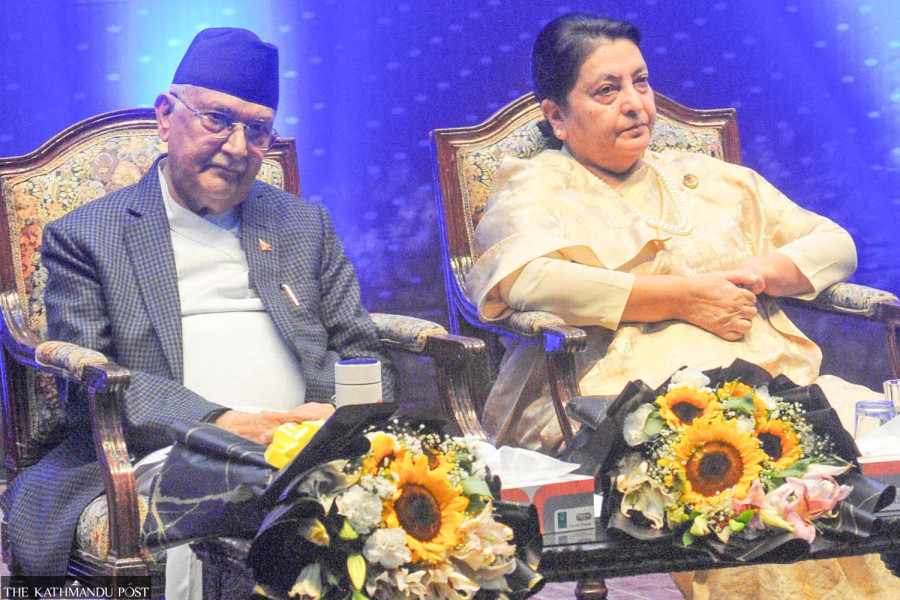Editorial
Old wine, old bottle
As the CPN-UML spends the next few years sorting out its internal mess, its popularity could further tank.
There was an air of inevitability around former President Bidya Devi Bhandari’s return to active politics. Ever since completing her second term as the head of state in March 2023, she had been repeatedly hinting at a possible comeback. On Saturday, Bhandari officially announced her reentry into the CPN-UML, a party once led by her charismatic late husband Madan Bhandari and where she previously served as vice-chair. Over the past few weeks and months, there has been plenty of commentary on the unsuitability of the return of the once occupier of the highest office in the land to active politics. It also sets a troubling precedent on conflict of interest. Yet if there is a sliver of silver lining in this otherwise dark cloud of self-centric politics, it is that, for the first time in years, KP Sharma Oli will have someone challenging his authority in the party. The current prime minister and UML chair had systematically crushed dissent and prevented the rise of any rival leaders. Oli, with his loud mouth and go-it-alone approach, also appeared increasingly willing to undermine public sentiment.
Bhandari’s entry will now embolden many senior party leaders who had kept quiet in fear of the all-powerful Oli. Hopefully, Oli’s monopoly on UML politics will come to an end and a more democratic culture will prevail in the party. Now that Bhandari is expected to challenge Oli for the top post in the UML general convention next year, there could be an instant polarisation in the UML as Bhandari seeks to build her base. Yet the good news over the comeback ends there. As was also evident in her speech announcing her reentry into the UML, Bhandari is hoping to ride on the coat-tails of her late husband and his contributions to the party and the country. In other words, in terms of ideas and leadership, she has nothing new to offer. And even though Oli’s monopoly in UML decision-making could now be challenged, the new polarisation will be more along the lines of personality cults rather than ideology. If this happens, instead of strengthening internal democracy, her comeback could lead to an anarchy inside the country’s largest communist force.
Nor is Bhandari likely to get much public support. She had a rather dubious record as the head of state, as she was widely disliked for her ostentatious ways and disregard for public concern. Particularly notorious were the hours-long traffic jams her motorcades caused. If she challenges Oli for the top party post, Bhandari will also struggle to assert herself after having served as Prime Minister Oli’s rubber-stamp during her two terms as President. She had unquestioningly approved his unconstitutional dissolution of the lower House—not once but twice. For the party as such, as it spends the next few years sorting out its internal mess, its popularity could further tank. A sizable section of Nepalis feel, with some justification, that both Oli and Bhandari are spent forces who bring nothing new to the table. Good luck with the party’s rejuvenation without any new ideas or an overarching vision for the country.




 10.12°C Kathmandu
10.12°C Kathmandu













